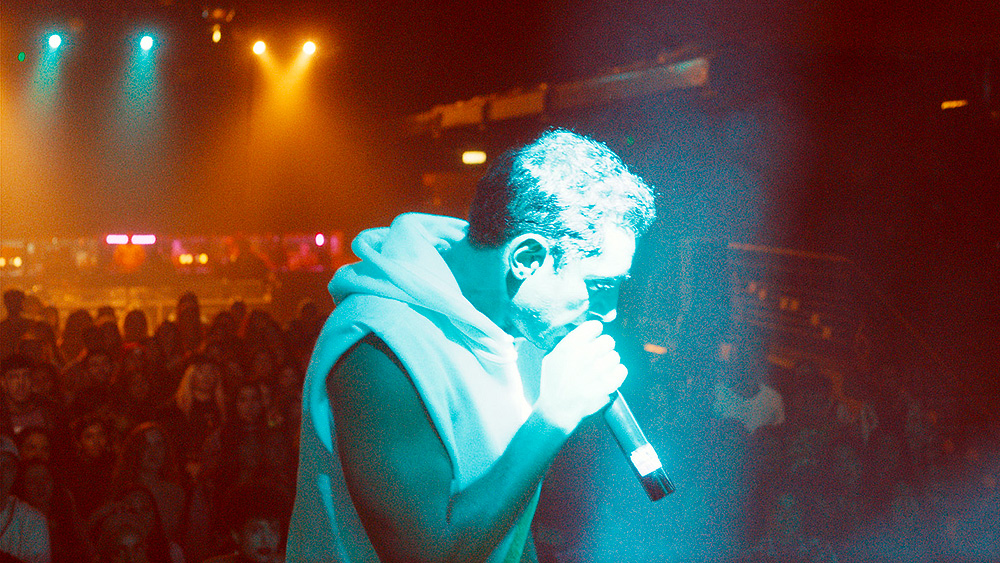During its economical ninety minutes, Mogul Mowgli is certainly ambitious in terms of its thematic reach. Attempting to tackle complex issues such as notions of Britishness, identity, breaking cultural traditions and the questioning of ‘home’, American-Pakistani documentary filmmaker Bassam Tariq’s first fictional feature has much to be admired, yet also feels like a missed opportunity.
Co-written by Tariq and British star Riz Ahmed, Mogul Mowgli tells the story of Zaheer Anwar (who prefers to be known as Zed), an ageing rapper who is on the cusp of his biggest tour to- date. Semi-estranged from his family back home in the UK, Zed gets struck down with a rare hereditary condition when he finally returns to London, forcing him to re-evaluate his priorities and values.
Mogul Mowgli has a great sense of truth to it, and addresses subject matters which are no doubt personal to Tariq and Ahmed. The settings of New York and London, characters with Pakistani heritage, and an MC trying to progress in the rap scene, to list just some. Indeed, the film’s various scenes of Zed’s rap performances are amongst the strongest in the film, allowing the audience to better understand our protagonist. These scenes also allow Ahmed to showcase his obvious talents with a microphone, which is of no surprise of course, having performed under the moniker Riz MC since the late-nineties whilst studying at Oxford University. Through the lyrics in Zed’s rapping - whether at a venue in New York, or in scenes of hallucination - the variety of labels put upon British-Pakistani males such as Zed (and potentially Ahmed too) are laid bare. He is both Zed and Zaheer, speaks English and Urdu, and feels British and Pakistani.
Tariq aligns his audience with Zed throughout the entirety of Mogul Mowgli, achieved in part by the sheer amount of screen time afforded to the character. We witness Zed in all manner of intimate moments including struggling to lift himself from the toilet, and later unsuccessfully searching for inspiration before providing a sperm sample. The character of Zed is not always likeable, and it is testament to both the writing and Ahmed’s performance that we are willing to forget any flaw in his personality. Furthermore, Anniker Summerson’s tight cinematography - particularly of interiors such as the family home, music venues and hospital rooms - provides a claustrophobic feel to the inescapable situation Zed has been forced into.
Yet for all Tariq’s commitment to establishing the bond between audience and protagonist, there is noticeably very little emotional stress created when Zed’s health and career take a nosedive. Whilst the film references complex matters such as the unwanted categories that British- Pakistani people get placed into, Tariq chooses not to explore these further in favour of detailing Zed’s personal strife when his health deteriorates. Moments of surrealist hallucination further place the audience with Zed psychologically, however these also prevent Mogul Mowgli from making clear statements on the film’s wider contexts, which are surely meaningful to Tariq and Ahmed.




